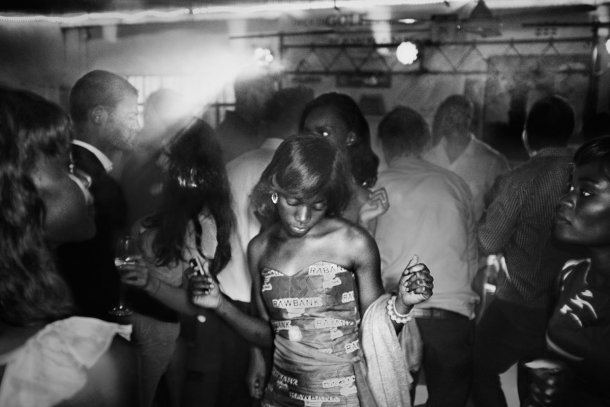'The Uncanny': um documentário fotográfico por dentro do Congo
Published12 Aug 2015

© Léonard Pongo da série The Uncanny 2011-2013
Léonard Pongo (b. 1988) é autor da série fotográfica The Uncanny, realizada na República do Congo em 2011, depois das eleições, com o objectivo de retratar as convulsões do país de forma indirecta, através do documentário da vida quotidiana dos seus habitantes, vencedora de vários prémios, entre os quais o POPCAP ’14 Prize Africa. Em entrevista ao site Another Africa fala do seu trabalho e da sua perspectiva documental da fotografia.
Candice Jansen | Léonard your virtual journal conveys a sense of your cerebral, eclectic influences as a thinking photographer. I also saw your work in film and print. I am curious how would you translate your artistic sensibilities into language? Would you be interested to write a brief textual accompaniment to a chosen image of yours? I am not asking for anything didactic, but as a kind of “opening shot” for readers to The Uncanny? Before you answer this, tell me, why have you titled the series The Uncanny?
Léonard Pongo | The uncanny, (das Unheimlich), refers to the feeling of “homeyness”, a feeling of discomfort and lack of safety in a known but distorted environment. It relates to my experience of the Congo as an encounter between a world of conflicts that partly resonates in me as homey, but constantly challenges me in my condition that is part-alien, part family. It refers to my feeling of being an uncanny stranger whose presence disturbs, but is still tolerated.
About your first question, I usually avoid “explaining” images, as I believe photography is not the best tool to tell clear stories and talking too much undermines the evocative power of images. Photography allows this sort of atmospheric shots, where an image translates a certain way of looking at the world, a certain emotional state, without being too specific about it.
You’re right but m
aybe, I wasn’t clear. I didn’t mean for you to explain the image, rather tointerpret it. Guess I wanted you to write from a position like the one you described in response to my request…“I love photography for its flaws, it opens up possibilities for interpretation, both by the photographer, and the spectator… and it is precisely in this interpretation that I try to position myself. Not delivering a specific truth, but shaping my message to make it faithful to my experiences”. Do you also write?Writing is always part of my larger process when making a photographic project. I usually keep some kind of journal, digital or analog. I would not call this “writing”, as it is more of a way to digest events. Watching, re-reading, re-writing, helps me understand where a project took me…. because photographs are failures at retelling the world truthfully. They abstract the world into a loaded atmosphere, without explanation. I try to bring forth a representation of the world based on experience, not facts, creating a faithful lie.
